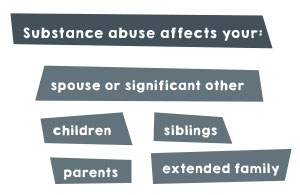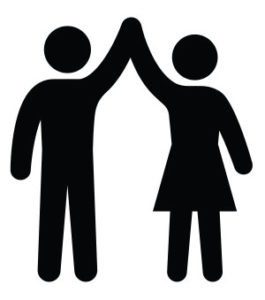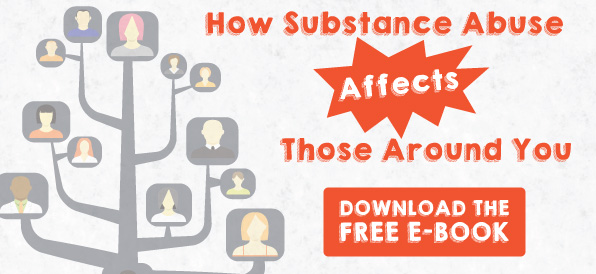No man is an island, noted the English poet John Donne in 1624 as he reflected on how every person is connected to other people. This is useful to keep in mind when considering that when someone starts abusing illicit drugs, he or she is not the only person affected by these dangerous substances. Drug abuse can damage bonds with family members, friends and neighbors, creative partners and coworkers.
Consequences of Addiction
There are many serious consequences for a person with an addiction. Individuals may become estranged from their loved ones, lose their job, home and savings and even wind up in jail or in the morgue. After this grim assessment, it’s worth reflecting on Donne’s statement that:
“Any man’s death diminishes me, because I am involved in mankind.”
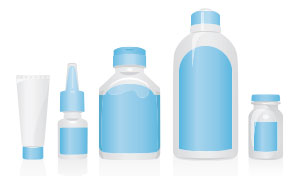
When concerned relatives, friends and other interested parties learn that someone close to them has become addicted to illicit substances, they will be affected in various ways, including:
- Shock
- Disbelief
- Anger
- Fear
- Sadness
- Compassion
Such reactions are perfectly normal. Mixed emotions are a natural part of the process as individuals try to help people with addiction determine whether they need treatment.
Healthcare costs stemming from drug abuse in the United States are as high as $11 billion, and alcohol abuse represents another $30 billion, notes the NIDA.
When you factor in lowered productivity at work and criminal activity on top of these health costs, the total amount is $193 billion for drugs and $235 billion for alcohol.
As more people learn about the dangers and consequences of abusing alcohol and drugs, they discover that there are a number of treatment options at their disposal. Options include rapid detoxification under strict medical supervision, intensive outpatient program (IOP) care and treatment at an inpatient facility.
Family Members
While abusing drugs, individuals risk alienating the people who love them the most. Marriages can end and children miss out on having a sober parent to take care of them and love them.
Not every drug comes from a drug dealer hanging out on a street corner. Many prescription drugs wind up being diverted from a medical professional’s original intended use to an illicit use.
The family medicine cabinet may contain leftover dangerous drugs with a potential for abuse. About 52 million people in the United States above the age of 12 have reported using prescription drugs for non-medical reasons at some point in their life, according to a report from the National Institute on Drug Abuse.
6.1 million individuals used prescription medications for non-medical purposes during the previous month.
Family members are often the first people to be noticeably affected when someone gets caught up in substance abuse.
-
-
Parents
-
Parents of an individual who has an addiction can feel multiple effects simultaneously.
They can experience a sense of guilt, wondering what went wrong in the family while also being concerned or worried that their child is in physical danger.
If substance or alcohol abuse has been going on for a significant amount of time, parents may grow frustrated or angry that the issue has escalated, with no relief in sight.
-
-
Siblings
-

Just like other family members, they may feel let down, have a sense of shame if anyone else finds out about the addiction, or worry that their brother or sister might wind up in jail or even die as a result of using illicit substances.
-
-
Spouses
-

Spouses can be frightened because they aren’t sure how to help their partner get treatment, or they might not even be aware of all the treatment options that are available.
One key to handling the problem is to research what happens at an inpatient treatment center or to find out the details about going through intensive outpatient program care or an aftercare program.
-
-
Children
-
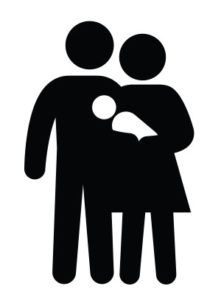
Older children who are aware of some of the effects of alcohol and drug abuse may be scared, anxious or angry with the parent. Will their parent wind up sick or in jail? What if their parent dies because of alcohol or drug abuse? The stress of such uncertainty can cause children to perform poorly at school.
Extended Family
In some cases, members of an individual’s extended family may be able to see signs of drug abuse more easily simply because they don’t see the person on a daily basis.
If you only see your uncle once or twice a year during a holiday meal, for example, the cumulative effects of drug and alcohol abuse will be more noticeable, such as changes in physical appearance or an altered personality, than if you saw this person more often.
Friends
Substance abuse can cause a great deal of social upheaval, testing the strength of friendships. Individuals who use drugs may wind up lying to their friends and stealing from them to support their habit.
Depending on how close they were initially and their resilience in the face of crisis, friends may part ways because of the negative effects of substance abuse, or they may remain standing by to offer support.
Friends who continue to support those with an addiction can look forward to a day when the person makes the decision to enter treatment. They can do research into treatment programs to help the individual with addiction determine the best solution.
In some cases, friends are the only people left to provide support if family members have abandoned the person with addiction, and they wind up functioning as a kind of surrogate family.
Creative and Research Partners
In many creative and research-oriented endeavors, people partner with like-minded associates to work on projects that are too big for one person to accomplish individually. Examples include:
- Music performers
- Actors in theatrical productions, TV shows and movies
- Computer programmers
- Researchers in academia, government and business
For example, one person, feeling the pressure to succeed, may start abusing stimulants in an effort to artificially boost productivity. He or she finds that drinking coffee is no longer sufficient to keep up with the grueling pace of work and turns to substances such as cocaine or methamphetamine.
The Broken Piece on the Team
Among the most abused prescription drugs are stimulants, with approximately 1.1 million people using them, according to the latest available figures from the National Institute on Drug Abuse.
Soon, work becomes erratic, the person stops showing up on time for meetings or otherwise starts dropping the ball on crucial project milestones.
When one member of a creative or research team winds up abusing substances or gets addicted to drugs, it can throw the entire project out the window. The team may miss a crucial deadline and miss an opportunity to ship a product or go to the next level of fundraising.
Public Scrutiny
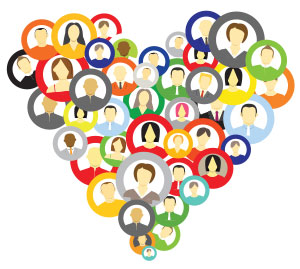
In some cases, fans who are disappointed that they will miss the performance will recognize the importance of the entertainer’s getting vitally needed help. However, the other members of the team may have to put their work on hold, losing a source of income and a sense of stability until their missing partner’s treatment is concluded.
Neighbors
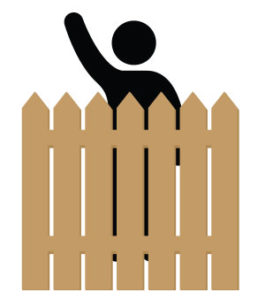
Some neighbors might want to forbid their children from visiting the home of an individual who is addicted to alcohol or drugs because they want to protect their offspring from criminal activity. They can also forbid their children from contacting a neighbor with an addiction because of issues of supervision and safety.
Neighbors may also react from an economic perspective, fearing that their property values could decline if the person with addiction fails to keep up with maintaining the home and yard or if criminals are coming from outside the neighborhood to visit the home to sell illegal drugs.
Business Associates
Because we typically spend as much as a third or more of our lives in the workplace, it’s natural that business associates will be affected by substance abuse around them.
Physical Dangers as Well as Emotional
When people abuse drugs and alcohol in the workplace, they not only put themselves in harm’s way, but they can pose a danger to their coworkers and customers. For example, a forklift operator shouldn’t be intoxicated while operating heavy machinery.
The Centers for Disease Control and Prevention noted that more than 15 percent of workers in the United States report that they have been impaired by alcohol while at work at least once during the previous year, and that 9 percent of employees said they came to work hung over.
An office worker might miss meetings with new clients because of problems stemming from drug abuse, leading to the company’s losing business. Multiple errors and missed opportunities like this can lead to a decline in the company’s fortunes and jeopardize its continued existence as an industry leader.
Actively Hurting Their Co-Workers

Whether a person is abusing recreational drugs, alcohol or prescription medications, the toll at the workplace can be enormous. For example, the cost of prescription opioid abuse in the United States is $55.7 billion, with about 46 percent attributed to workplace costs in 2007, the latest year for which figures are available from the Centers for Disease Control and Prevention.
Military

Lives on the Line
Members of the military can be affected in a variety of ways when someone around them is abusing substances. Their lives could be on the line if a comrade is intoxicated or otherwise impaired from alcohol or drugs. They may also feel reluctant to turn in a fellow soldier out of a fear of losing the friendship.
About 2.3 percent of military personnel used illicit drugs during the past month.
The report noted how the military’s Zero Tolerance Policy regarding drug abuse contributes to lower usage rates when compared with the civilian population. Members of the military caught using illegal substances face criminal prosecution and dishonorable discharge.
Zero Tolerance Isn’t Always the Answer
However, the report states that “zero-tolerance policies and stigma pose difficulties in identifying and treating substance use problems in military personnel, as does lack of confidentiality that deters many who need treatment from seeking it.” It’s crucial for people with an addiction who are serving in the military to make a decision to recover and obtain treatment before they injure themselves or those around them.
People’s Common Reactions to the Person with Addiction
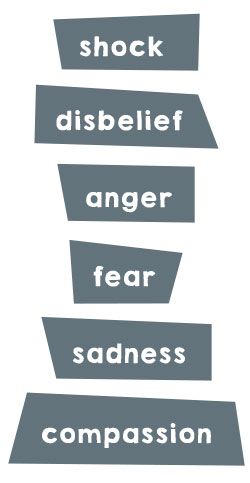
They may even experience a sense of recognition, especially if there is a family history of drug and alcohol addiction or if the person with addiction had in previous years abused substances in a seemingly more “casual” manner (such as a single youthful instance of getting caught drinking or smoking marijuana at a party).
Feelings of Guilt
It’s not uncommon to experience feelings of guilt when a friend, associate or loved one has gotten caught up in abusing illicit substances. Parents, for example, may wonder what they did wrong in raising their child.
Significant others and friends will wonder how they missed the signs of intoxication and addiction and blame themselves for not figuring out that there was a problem.
Enabling Behavior
One troubling way that people react to drug and alcohol use around them is to engage in enabling behavior. This includes covering for a loved one who cannot make it to work, making excuses for unpleasant behavior or providing money and other resources that they know will be used to purchase alcohol or drugs.
Betrayal and Anger

It can be quite a blow when someone you are close to betrays your trust, even when you know that alcohol or drug abuse played a significant role in the deception.
In some cases, family and friends can get past their feelings of betrayal and embrace the person with addiction as he or she makes the decision to enter recovery and get vitally needed treatment from professionals.
Sense of Responsibility
When people discover that someone they know has become addicted to drugs or alcohol, they may feel a sense of responsibility about the situation. They want to help the individual, and one of the most important things they can do in this regard is to do research into treatment options.
It’s also useful to remember that providing material support, as well as moral support, will go a long way toward helping the person entering a treatment program.
No Easy Answers
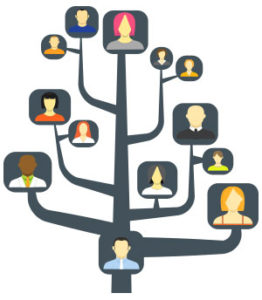
Connections are hard to keep.
It’s never an easy situation when a person discovers that a friend, coworker or relative has an addiction, and it can be difficult as well for the person with an addiction to recognize that he or she has a problem. Fortunately, a great amount of research-based information and other resources are available to help inform people who have made the decision to enter recovery.
Anyone who has been affected by the problems of alcohol and substance abuse and wants to provide help or get help for someone else will want to visit this site periodically to learn more about treatment options, as well as the dangerous consequences of not getting any treatment at all.


